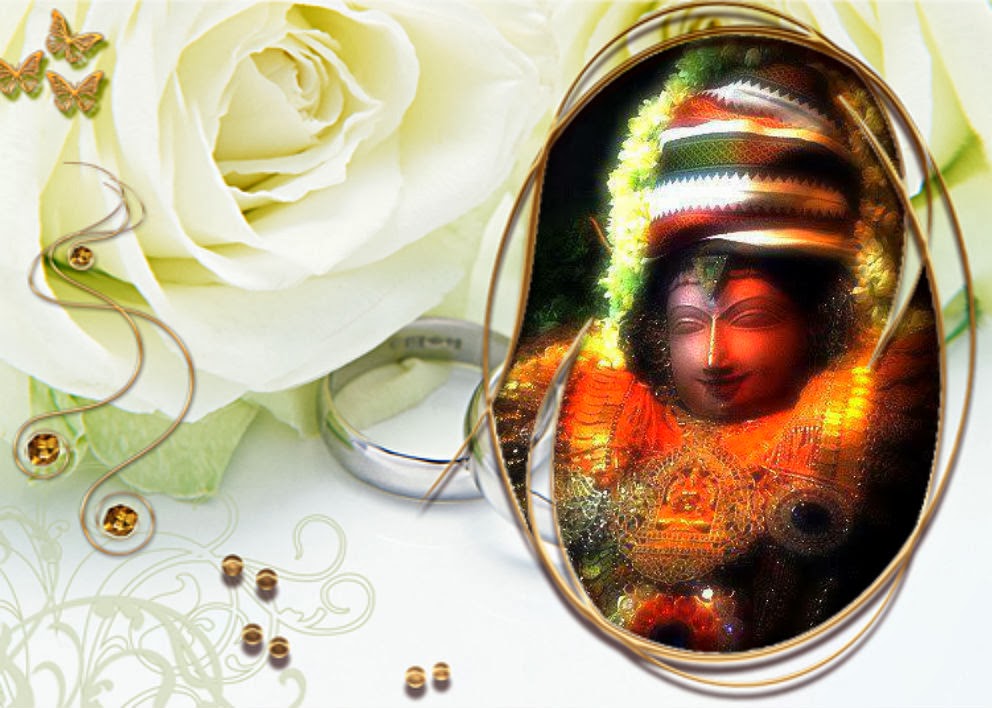Jai Sriman Narayana !!
Thasyam Pooryam Ayodhyayam
Vedavith Sarva Sangraha: |
Dheerga Dharshi Mahatheja: Poura
Janapadh Priya: ||
Ikshvakunam Athiratho Yajva
Dharmaparo Vashi |
Maharshikalpo Rajarshi: Thrishu
Lokeshu Vishrutha: ||
Balavan Nihatha Amithro Mithravan
Vijitha Indriya: |
Dhanai: cha Samcharyai: Cha
Anyai: Shakra Vaishravana Upama: ||
Thatha Manur Mahatheja Lokasya
Parirakshitha |
Thatha Dasharatho Raja Lokasya
Parirakshitha ||
The illustrious Sage Valmiki
describes the excellence of King Dasaratha, who is well-versed in Veda, associate
with intellectuals, righteous ruler of flourished land with the powerful army
of men, brilliant foreseer, highly revered by the rulers of neighboring cities
and the subjects of his Kingdom, glorious charioteer from the clan of Ikshvaku,
ardent follower of Vedic rituals, saint like ruler/Rajarishi, well known in
three worlds for his prowess, vanquisher of enemies, has perfect control over
senses and resembles Lord Indra and Lord Kubera. The great Emperor Dasaratha wisely ruled the
City of Ayodhya like Manu, the foremost protector of mankind. This virtuous King ruled the City of Ayodhya
like Lord Indra ruled the City Amaravati as his capital. The people of the City of Ayodhya was
righteous, highly intellectuals. They
were honest, lived a happy life with their own riches and there was no voracity
or poverty prevailed. The people had
enough means of wealth to take care of their families; there was no householder
without cow or horse. There was no lust,
misery, cruelty existed, and all the people were believers in Supreme Lord. The men and women were blameless, virtuous
and had perfect control over their senses, lived life of saints. They sincerely followed the customs like
wearing ornaments such as earstud/Karnakundali, head covered, and garlands;
they take regular oil-bath and apply sandalwood paste and fragrances on their
body. They were highly benevolent and
covered themselves with traditional jewels.
They perform fire sacrifices and strictly follow the rituals; there was
none to be found with immoral behavior.
The scholarly Brahmins impart knowledge to their disciples, passionately
engaged in the rituals and service and earn alms. There was no atheist, disabled, jealous,
dishonest lived in this city, and all the people were righteous and had
thorough knowledge in Veda. There was no
miseries and grieves, the people were lived a life prescribed in the scriptures,
they were generously perform charity, they had enough knowledge in Vedas and
related subjects like astrology, prosody, grammar etc.. The people of Ayodhya enriched with wealth
and devotion to their King. They strictly
followed the Varna Ashrama, they were cordial, faithful and courageous. The people were lived a long and happy life
with their children, grandchildren and great grandchildren. Kshtriyas abundantly supported the Brahmins,
the scholarly class in performing rituals.
Vyshyas well performed their duties in trading business and assisted Kshtriyas
. Shudras, the serving class relentlessly
served the above three classes. This city of Ayodhya was well protected by King Dasaratha from the Ikshvaku
Dynasty in the same manner as it was ruled by Manu. This great city was enriched with powerful warriors
proficient in archery, chariot fight; sword fight etc…also loaded with fine
horses from Kambhoja, Bahlika, Vanayu and its river banks had the resemblance
of the divine horse Ucchaishravass of Lord Indra. The army had great load of vigorous elephants
from Mount Vindhya, Mount Himalaya etc…which belongs to the superior classes of
Iravatha, Mahapadma, Anjana, Vamana, Bhadra, Mandara, Mriga relentlessly etc.. The great City of Ayodhya of several thousand
Yojana was wisely ruled by the honorable King Dasaratha, overpowered his
enemies like moon leading the stars. The
magnificent palace with marvelous structures was the Abode of King Dasaratha
and his ministers of assembly.
Jai Sriman Narayana !!
